
Existentialism is a family of philosophical views and inquiry that prioritize the existence of the human individual, study existence from the individual's perspective, and conclude that, despite the absurdity or incomprehensibility of the universe, individuals must still embrace responsibility for their actions and strive to lead authentic lives. In examining meaning, purpose, and value, existentialist thought often includes concepts such as existential crises, angst, courage, and freedom.

Existentialism Is a Humanism is a 1946 work by the philosopher Jean-Paul Sartre, based on a lecture by the same name he gave at Club Maintenant in Paris, on 29 October 1945. In early translations, Existentialism and Humanism was the title used in the United Kingdom; the work was originally published in the United States as Existentialism, and a later translation employs the original title.

Helena Ann Kennedy, Baroness Kennedy of The Shaws, is a Scottish barrister, broadcaster, and Labour member of the House of Lords. She was Principal of Mansfield College, Oxford, from 2011 to 2018. A Bencher of Gray's Inn, an Honorary Writer to the Signet and the recipient of 42 Honorary Degrees from many universities including those of Glasgow and Edinburgh in recognition of work on women and the law and on widening participation in higher education. She is President of Justice, the law reform think tank, and is also director of the International Bar Association's Institute of Human Rights.
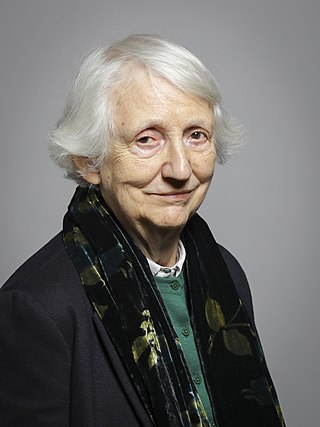
Onora Sylvia O'Neill, Baroness O'Neill of Bengarve is a British philosopher and a crossbench member of the House of Lords.

Robert C. Solomon was a philosopher and business ethicist, notable author, and "Distinguished Teaching Professor of Business and Philosophy" at the University of Texas at Austin, where he held a named chair and taught for more than 30 years, authoring The Passions: Emotions and the Meaning of Life (1976) and more than 45 other books and editions. Critical of the narrow focus of Anglo-American analytic philosophy, which he thought denied human nature and abdicated the important questions of life, he instead wrote analytically in response to the continental discourses of phenomenology and existentialism, on sex and love, on business ethics, and on other topics to which he brought an Aristotelian perspective on virtue ethics. He also wrote A Short History of Philosophy and others with his wife, Professor Kathleen Higgins.

Ruth Lynn Deech, Baroness Deech, DBE is a British academic, lawyer, bioethicist and politician, most noted for chairing the Human Fertilisation and Embryology Authority (HFEA), from 1994 to 2002, and as the former Principal of St Anne's College, Oxford. Deech sits as a Crossbench peer in the House of Lords (2005–) and chaired the Bar Standards Board (2009–2014).
Feminism is a collection of movements aimed at defining, establishing, and defending equal political, economic, and social rights for women. Existentialism is a philosophical and cultural movement which holds that the starting point of philosophical thinking must be the individual and the experiences of the individual, that moral thinking and scientific thinking together are not sufficient for understanding all of human existence, and, therefore, that a further set of categories, governed by the norm of authenticity, is necessary to understand human existence. This philosophy analyzes relationships between the individual and things, or other human beings, and how they limit or condition choice.

Lisa Anne Jardine was a British historian of the early modern period.
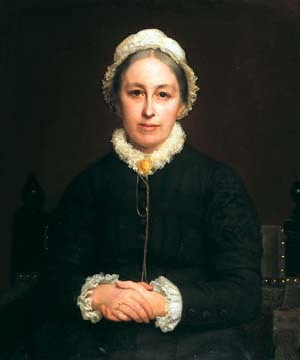
Sarah Emily Davies was an English feminist who founded Girton College, Cambridge. She campaigned as a suffragist and for women's rights to university education. In her early life, she attended meetings of the National Association for the Promotion of Social Science and befriended Barbara Bodichon and Elizabeth Garrett Anderson. After moving to London with her mother in 1862, she wrote for and edited the English Woman's Journal and joined the Langham Place Group. She co-founded the London Schoolmistresses' Association and the Kensington Society, which pressured for universal suffrage, although she herself believed only unmarried women and widows should gain the vote.
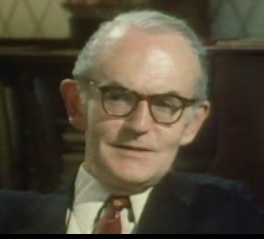
Sir Geoffrey James Warnock was an English philosopher and Vice-Chancellor of Oxford University. Before his knighthood, he was commonly known as G. J. Warnock.
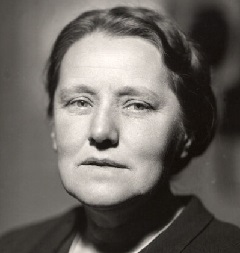
Lizzie Susan Stebbing was a British philosopher. She belonged to the 1930s generation of analytic philosophy, and was a founder in 1933 of the journal Analysis. Stebbing was the first woman to hold a philosophy chair in the United Kingdom, as well as the first female President of Humanists UK.
Women have made significant contributions to philosophy throughout the history of the discipline. Ancient examples of female philosophers include Maitreyi, Gargi Vachaknavi, Hipparchia of Maroneia and Arete of Cyrene. Some women philosophers were accepted during the medieval and modern eras, but none became part of the Western canon until the 20th and 21st century, when some sources indicate that Simone Weil, Susanne Langer, G.E.M. Anscombe, Hannah Arendt, and Simone de Beauvoir entered the canon.

Emily Elizabeth Constance Jones known as Constance Jones or E.E. Constance Jones, was an English philosopher and educator. She worked in logic and ethics and served as mistress of Girton College, Cambridge from 1903 to 1916.

Pauline Perry, Baroness Perry of Southwark is an educator, educationist, academic, and activist. She is a Conservative politician and was for 25 years a working member of the British House of Lords. In 1981 she became Her Majesty's Chief Inspector of Schools in England. In 1986 she became Vice-Chancellor of South Bank Polytechnic, and serving during its transition to a university, became the first woman in history to run a British university.
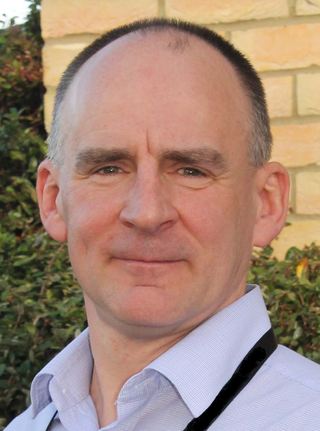
Gary Cox is a British philosopher and biographer and the author of several books on Jean-Paul Sartre, existentialism, general philosophy, ethics and philosophy of sport.
Maxwell John Charlesworth AO FAHA was an Australian philosopher and public intellectual. He taught and wrote on a wide range of areas including the philosophy of religion and the role of the Church in a liberal democratic society; Australian Aboriginal culture and religions; European philosophy from medieval to continental; bioethics and modern science’s role in society; and the philosophy of education. In 1990, he was made an Officer of the Order of Australia for his contributions to Australian society in the fields of education and bioethics.
Emily Meg Jackson, is a British legal scholar who specialises in medical law. She has been Professor of Law at the London School of Economics since 2007 and head of its Law Department since 2012. She has previously researched or lectured at the Faculty of Law, University of Oxford, at St Catharine's College, Cambridge, at Birkbeck College, University of London, and at Queen Mary, University of London.

Sartre: Romantic Rationalist is a book by Iris Murdoch. Published in 1953 by Bowes & Bowes of Cambridge, it was Murdoch's first book and the first book about Jean-Paul Sartre's work to be published in English.
Helen Marion Wodehouse was a British philosopher and Mistress of Girton College, Cambridge. She was also the first woman to hold a professorial chair at the University of Bristol.
David Archard is a British moral philosopher who is Emeritus Professor of Philosophy at Queen's University Belfast. He is known for his work on children and families.














